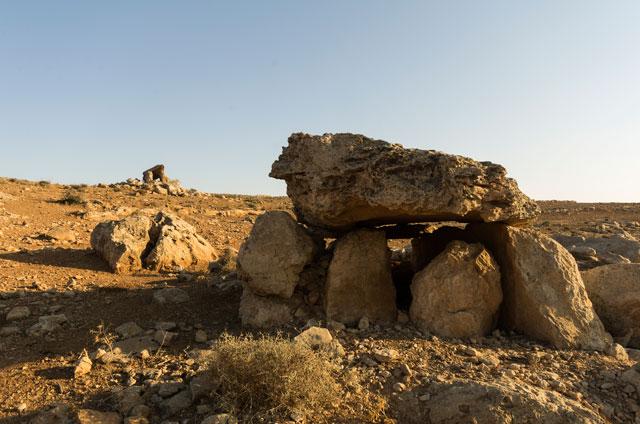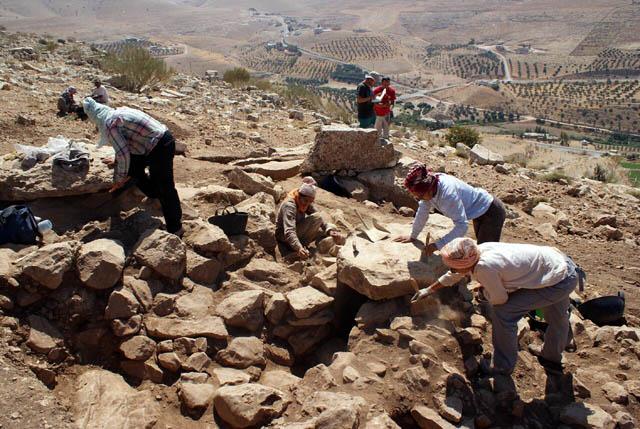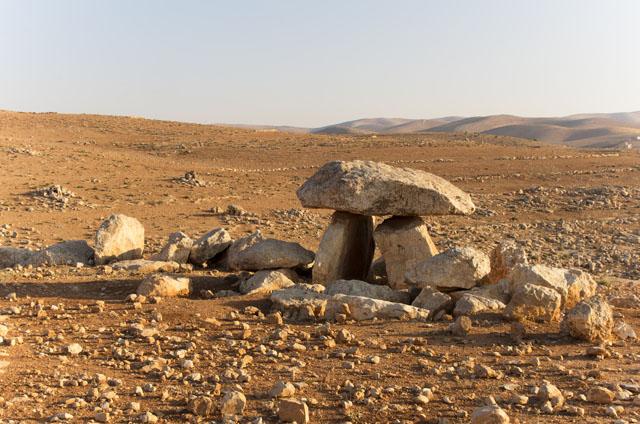You are here
‘Spanish archaeologists have history of work in Jordan’
By Khetam Malkawi - Apr 18,2016 - Last updated at Apr 18,2016

An undated photo of dolmens in the Jabal Mutawwaq area (Photo courtesy of Juan Ramón Muñíz)
AMMAN — Spanish archaeologists have a long history of working in Jordan, and they have contributed to several discoveries in main archaeological sites in the country, according to an expert.
Juan Ramón Muñíz, a Spanish archaeologist, said the work of his Spanish colleagues in Jordan started in 1906, led by Bonaventura Ubach, who looked for Biblical sites, mostly in Ajloun, some 70km northwest of Amman, back then.
Ubach, according to Ramón Muñíz, left behind a diary documenting important data about shrines in that area.
In a lecture at Instituto Cervantes on Sunday, Ramón Muñíz, who currently heads a mission in Jabal Mutawwaq on the Zarqa River Basin, said the era when the Umayyad Palace was built was also discovered and defined by Spanish archaeologist Emilio Olávarri Goicoechea.
The excavation and discovery of several important places in Jordan were led by Spanish archaeologists, and the missions only stopped between 1982 and 1989 due to lack of funds.
Currently, Ramón Muñíz said his mission is continuing the work started by Juan Antonio Fernández in 1989.
This site, he explained, is key to understanding the onset of the Bronze Age in Jordan, and has a village with more than 300 stone houses and more than 1,000 dolmens.
Excavations at the site have also led to the discovery of pottery pieces with etchings of snakes on them and bones of babies inside them.
“We are still trying to find out if the babies used to be served as offering for the snakes or not,” to Ramón Muñíz explained.
In a previous interview with The Jordan Times, the archaeologist noted that the populated area in Jabal Mutawwaq covers 13 hectares, while the surrounding area extends over another 18 hectares, thus the excavation will take a long time.
Related Articles
AMMAN — For archaeological expert Juan Ramón Muñiz, the Spanish Archaeological Mission in Jordan is a symbol of “the cultural friendship tha
Climate change has had an impact on civilisations for thousands of years, as the Jabal Mutawwaq site that dates back to 3000 BC shows, according to archaeologists.
AMMAN — High above the Zarqa River, the mountaintop ‘Temple of the Serpents’ gives clues to the development of human communities during the













